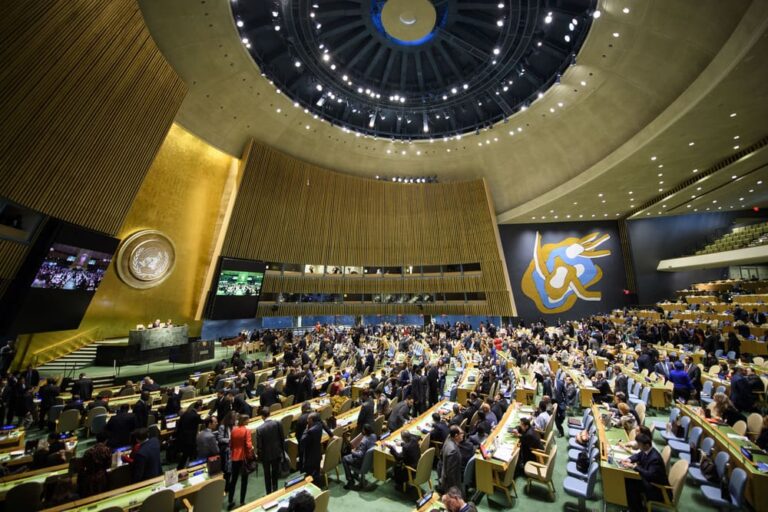The UN vote on the resolution on Ukraine highlights the divergent positions of African states.
While some countries strongly identify with the resolution, others mark their opposition, illustrating the continent’s dissimilar diplomatic approaches to the conflict.
The United Nations General Assembly adopted a resolution on Monday aimed at promoting “a comprehensive, just and lasting peace in Ukraine”, but it revealed a gulf within the African continent in the face of this conflict that has been going on since 2022.
With a final score of 93 votes in favour, 18 against and 65 abstentions, resolution A/ES-11/L.10 was widely approved.
However, analysis of the African vote highlights a nuanced position: 10 African countries backed the resolution, 8 opposed it, while 22 abstained from voting. Seven countries were absent.
African backers of the resolution included Egypt, Côte d’Ivoire, Nigeria and Rwanda, reflecting an adherence to the principles of territorial integrity defended by it. In contrast, a bloc of countries including Niger and several states under military rule – Burkina Faso, Mali, Eritrea and Sudan – clearly showed their opposition. Burundi also expressed its opposition to the resolution.
However, the majority of African nations opted to abstain, including South Africa, Algeria, several countries in southern Africa and West Africa such as Senegal.
This reflects the desire of many countries on the continent to maintain a balanced position in the face of
geopolitical tensions between major powers.
As the Ukrainian conflict enters its fourth year, this vote underscores the persistent fragmentation of the international community and the challenges of multilateral diplomacy in the face of protracted crises.
AC/Sf/fss/as/APA


